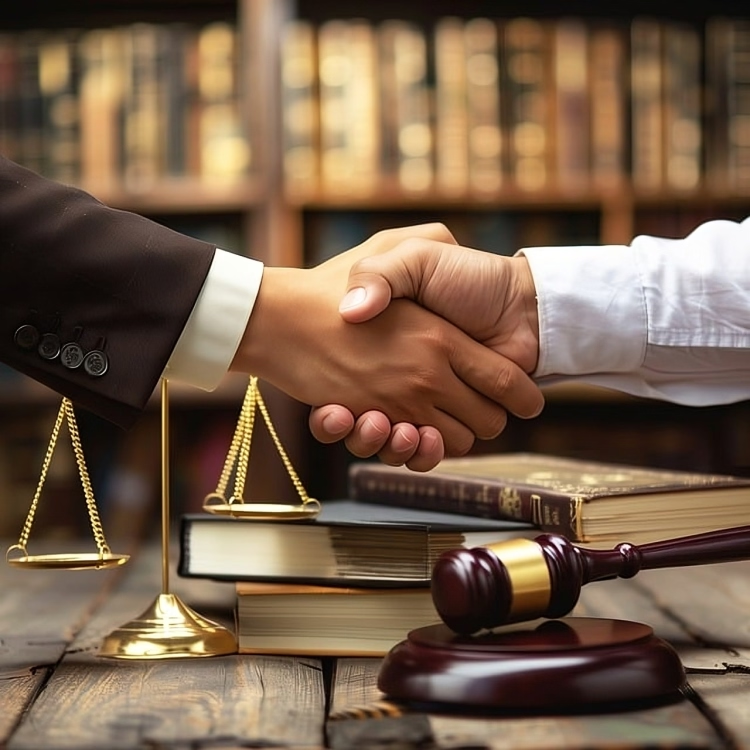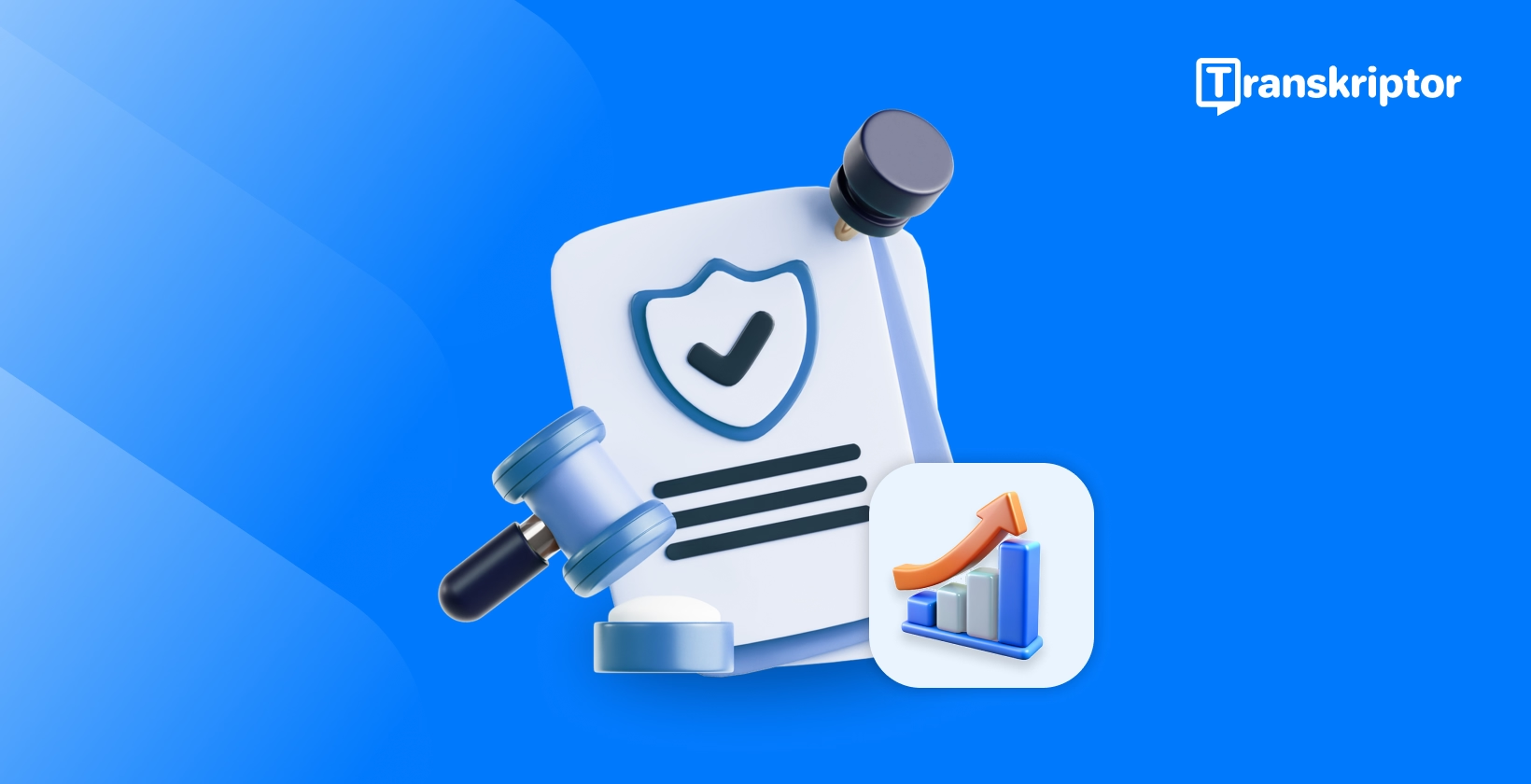Introduction to Improving Law Firm Productivity
In today’s competitive legal landscape, improving law firm productivity is not just a goal but a necessity. With the increasing demand for diverse legal services, law firms must find innovative ways to optimize workflows, streamline processes, and enhance productivity. Effective productivity strategies are crucial for law firms to improve client satisfaction, increase billable hours, and drive growth and profitability.
By focusing on productivity, legal professionals can efficiently deliver high-quality legal services, meet their clients' expectations, and maintain a competitive edge. This article will explore the importance of law firm productivity and provide actionable tips to help legal professionals improve their workflows and achieve their goals.
Why Are Productivity Hacks Essential for Lawyers?
According to KPMG, the need for legal services is growing, more than the market for traditional legal advice, as is the variety of legal services people require. Lawyers are dealing with increasingly challenging cases, which are complicated for a variety of reasons – including (but not limited to) the rise of generative artificial intelligence, interest rates on properties being at their highest since 2008, and the introduction of new rules for businesses claiming that they are sustainable.
The premise of client satisfaction remains the same: the more efficiently you can deliver the client the verdict they want, the happier the client is. So, productivity is the foundation of a career in law. The level of productivity you can achieve determines the experience of the clients whose cases you're working on, how profitable the firm you work for is in terms of your hourly rate, and your overall success compared to the other people in your career.
Lawyers must master the balance between efficiency and achieving the desired case outcome, utilizing AI for lawyers to streamline their processes. Many AI tools for lawyers are designed to help them summarize lengthy legal documents, manage casework, and draft contracts. Productivity hacks, like using AI tools, are essential for lawyers to deal with their immense workload.

How Can Transcription Services for Lawyers Boost Efficiency?
Legal practitioners find transcription to be a lifesaver for legal practice because it allows you to automate the conversion of audio files to text, whether that is a recording of a deposition from the scene of a crime or a meeting with the client, without compromising on accuracy, including transcription for legal .
Additionally, using transcription software enhances this process significantly. Moreover, transcripts save you from reviewing hours of footage to find one specific moment in a recording (because you can scan the text for it) and make it easier to collaborate with other legal professionals working on the case for which the transcript is part.
Streamlining Document Preparation by Automating Repetitive Tasks
Documentation preparation is a large part of a lawyer's workday, from contracts to leases to wills to research. Automating the conversion of audio file text saves time. It reduces the potential for error in the document, which is essential in the world of law when one incorrect word can change the context of a case and (potentially alter the outcome).
Transcription services like Transkriptor, which deliver 99% accurate transcription regardless of background noise and overlapping speech, are a must-have for legal professionals for whom accuracy and efficiency are equally important. Moreover, automating the conversion of legal recordings into text saves time and allows lawyers to focus on core tasks that require their expertise.
Automatic audio-to-text conversion helps lawyers manage legal cases because transcripts make it easier to refer to a specific moment in a recording without sifting through hours of footage to find it. They also allow lawyers to annotate the text and do a different kind of analysis than they can when they listen to the audio.
Annotating transcripts will enable lawyers to reach different conclusions than when they listen to the audio alone, given that various connections are more evident on paper than on tape. It will also make it easier for them to share the information with other legal professionals on the case with whom they collaborate.

What Are the Best Speech-to-Text Tools for Attorneys?
The best speech-to-text tools for attorneys are:
Transkriptor stands out from other AI-powered speech-to-text tools for legal professionals because it guarantees 99% accuracy regardless of the recording containing jargon (like legal terminology) or overlapping speech (which often occurs in courtrooms). Moreover, Transkriptor offers password protection, cloud storage, and end-to-end encryption to protect the sensitive information that lawyers deal with. These tools can also improve law firm productivity through practical tips and strategies that effectively enhance efficiency and manage workloads.
Amberscript
Amberscript is an automatic transcription tool with a user-friendly interface, pay-as-you-go pricing, and support for various accents. It is a good choice for lawyers who don't record regularly and transcribe their conversations with multiple people.
TranscribeMe
TranscribeMe is a hybrid service combining AI transcription and human transcriptionists to deliver quality transcripts. However, TranscribeMe is significantly more expensive than other tools on the market, so it's not suited to independent practitioners or small legal practices with a limited budget.
Otter.ai
Otter.ai is an AI-powered transcription tool offering the robust security features legal professionals need, including two-factor authentication. Still, its usage-based pricing could be better for users who plan to transcribe audio regularly.
Rev
Rev is a transcription service that blends automatic transcription with manual transcription services to guarantee accuracy for legal recordings. The professional transcriptionist has the legal knowledge to understand the jargon that software often doesn't. However, Rev users are subject to long turnaround times, a risk for time-sensitive legal proceedings.
Features to Look for in Speech-to-Text Software
The most important features to look for in speech-to-text software for legal practice are accuracy, integration with any software they already use, and ease of use, especially when utilizing transcription software . Lawyers have a large workload, and cases are time-sensitive, so they must be okay with proofreading the transcript to ensure accuracy or scheduling time to learn how to use the tool.
Transkriptor is an excellent choice for legal professionals because its simple interface allows newcomers and experts to achieve the same results, so you don't have to spend time learning how to master the tool. It also guarantees that the sensitive information you upload doesn't leak (through password protection, cloud storage, and end-to-end encryption).
Another feature that makes Transkriptor well-suited to legal professionals is its 99% accuracy rate. Lawyers must be sure that the tool they use generates transcripts that reflect the audio word-for-word. Otherwise, they risk inaccuracies that change the meaning of the entire case.
Integrating speech-to-text software into your workflow is easy because Transkriptor allows you to transcribe speech in real time with the microphone on your device or upload an existing record and generate a transcript afterward. Thus, you are flexible about how, when, and for what you use the tool in your legal workflow.
How to Effectively Use Voice-to-Text in Legal Practice?
Voice-to-text technology allows lawyers to focus on core legal tasks that require their expertise, automate the creation of tedious legal documentation, annotate the text to share ideas with other legal professionals working on the case, and reference specific moments in a recording without reviewing hours of footage.
Remember to maximize voice-to-text for daily tasks in legal practice! Use speech-to-text to dictate billing information to an assistant or billing resource to avoid having to go through four weeks of receipts at the end of the month and debrief after client lunches by recording yourself describing what was discussed and transcribing it afterward.
Moreover, speech-to-text is a helpful tool for leaving comments on documents because you can give feedback as fast as you think rather than slow down your train of thought to write it down. Remember to use voice-to-text to compose emails and messages because it's faster to communicate with your teammates and respond to clients when you type with your voice!

Enhancing Communication and Collaboration Among Legal Professionals
Transcripts provide a textual representation of spoken evidence, ensuring that every person who reads them is on the same page and understands the information within its context. Voice-to-text tools improve collaboration amongst legal teams because each member works with the same document containing the same information in the same format, ensuring apparent miscommunication.
Moreover, voice-to-text tools facilitate quick dissemination of information within legal teams because it's easier to share an annotated transcript of a legal proceeding than to ask people to listen to hours of footage to make the same remarks.
Legal teams need help collaborating when they don't share a vocabulary. They must remember to lay out the specific goals for each task and manage expectations about timelines. Voice-to-text tools ensure that every person working on the case uses the same resource, written in the same language, to prevent misinterpretation and misunderstanding, which often happens when people listen to the same audio.
Task Automation and Delegation
Task automation and delegation are pivotal in enhancing law firm productivity. Automating repetitive tasks such as document management, data entry, and client communication can significantly reduce the time lawyers spend on these activities, allowing them to focus on complex legal work that requires their expertise. Tools that automate these routine tasks can streamline operations, minimize errors, and improve overall efficiency.
Delegation is equally essential. By effectively communicating and building trust with legal associates and support staff, lawyers can delegate tasks that do not require their direct involvement. This reduces their workload and empowers team members to take ownership of their responsibilities, fostering a collaborative and productive work environment. Law firms can optimize their operations and enhance productivity by leveraging automation and delegation.
Effective Communication and Email Management
Effective communication and email management are critical components of improving law firm productivity. Lawyers often find themselves overwhelmed by the sheer volume of emails, which can be a significant productivity drain. Implementing strategies such as batching emails, using email templates, and setting aside dedicated time for email management can help lawyers manage their inboxes more efficiently. By reducing the time spent on email, lawyers can focus on more critical tasks that require their attention.
Clear and effective communication with clients and team members is also essential. Misunderstandings and errors can lead to wasted time and resources. Law firms can improve their overall productivity by ensuring concise and clear communication and using tools that facilitate collaboration. Effective communication helps align team efforts, reduce errors, and ensure everyone is on the same page.
What Are Some Tips for Taking Meeting Notes for Legal Teams?
Legal meetings cover a lot of informational ground and move quickly, so accurate notes must be available that allow participants to revisit the session and clarify any necessary information. The best way for a legal team to take notes during a meeting is with an automatic transcription tool that records the session and generates a transcript in real time or directly after it ends.
Transkriptor, an AI-powered transcription tool, comes with a meeting bot that connects to your call (on Google Meet, Microsoft Teams, or Zoom) and automatically generates a session transcript when it ends. Using a transcription tool for note-taking is more efficient than writing them up yourself because you can focus on the session's content – listening to the participants and contributing your ideas - while the software summarizes the discussion.
Organizing and Archiving Meeting Notes
Audio recordings quickly become disorganized because you need help scanning or previewing the content to identify the best location to save it. Many legal teams end up with several hours of footage from different meetings in a folder with no way to differentiate them beyond their names.
Transcribing legal recordings allows you to divide them into different documents and save them in specific folders so that the notes are correctly organized, easily accessible, and referenced for future meetings or legal proceedings. Transcribing conferences and keeping the text in predetermined folders allows legal teams to be consistent with their organization so every member can find the documents they need when needed.
Productivity Mindset and Habits
Developing a productivity mindset and cultivating productive habits are essential for improving law firm productivity. Lawyers must prioritize efficiency and effectiveness in their daily routines. Setting clear goals, prioritizing tasks, and avoiding distractions are key components of a productivity-focused mindset. Techniques such as time blocking, where specific periods are dedicated to particular tasks, and deep work sessions, which involve uninterrupted focus on complex tasks, can significantly enhance productivity.
Regular breaks are also essential to maintain focus and reduce stress. Additionally, investing in professional development and staying up-to-date with the latest legal research and technologies can help lawyers stay ahead of the curve. By continuously improving their skills and knowledge, legal professionals can enhance their productivity and deliver better client services. Cultivating a productivity mindset and adopting effective habits can transform how lawyers work, leading to greater efficiency and success in their legal practice.
What Additional Productivity Hacks Can Lawyers Implement to Improve Law Firm Productivity?
Beyond automating the creation of legal documentation and other daily tasks in legal practice, legal practice management software is a productivity hack that helps lawyers (and law firms) manage daily workflows. It is a specific tool that helps manage cases, calendars, documents, tasks, time tracking, billing, and payments—all in one place.
Integrate legal practice management software into your workflow to streamline your operation. This will free you from having to maintain the systems manually and give your team easy access to the most up-to-date information.
Prioritizing Tasks and Managing Time Effectively
The legal industry is demanding, and the professionals working within it are consistently under pressure – both from their teams and clients. Effective time management is crucial for a sustainable legal career to ensure you finish your work and prevent burnout. For example, the Eisenhower Matrix is a great time management technique that prompts you to prioritize each item on your to-do list so you know where to start and how to be the most productive on a given day.
Routine tasks can accumulate and consume significant portions of a workday, sometimes taking as much as half an hour. Tracking the time spent on these repetitive tasks is essential to understand their impact on overall productivity.
Planning your time efficiently and maintaining a comprehensive calendar allows you to achieve a healthy work-life balance – even in the legal industry.
Conclusion
Adopting productivity hacks transforms the way lawyers carry out their legal practice. Productivity hacks allow lawyers to handle their large workloads more efficiently. They can devote their time to core tasks requiring expertise instead of reviewing footage or preparing legal documents.
Legal practice management software is a game changer for lawyers because it allows you to manage cases, calendars, documents, tasks, time tracking, billing, and payments all in one place—saving you the time (and energy) you would otherwise have to devote to doing the task by hand.
Transcription, whether you use a human transcriptionist or automatic transcription software, helps you reclaim lost time by ensuring that your legal documentation is error-free. It also makes it painless to collaborate with colleagues working on the same case and equips everyone on the team with the same information in the same format.

